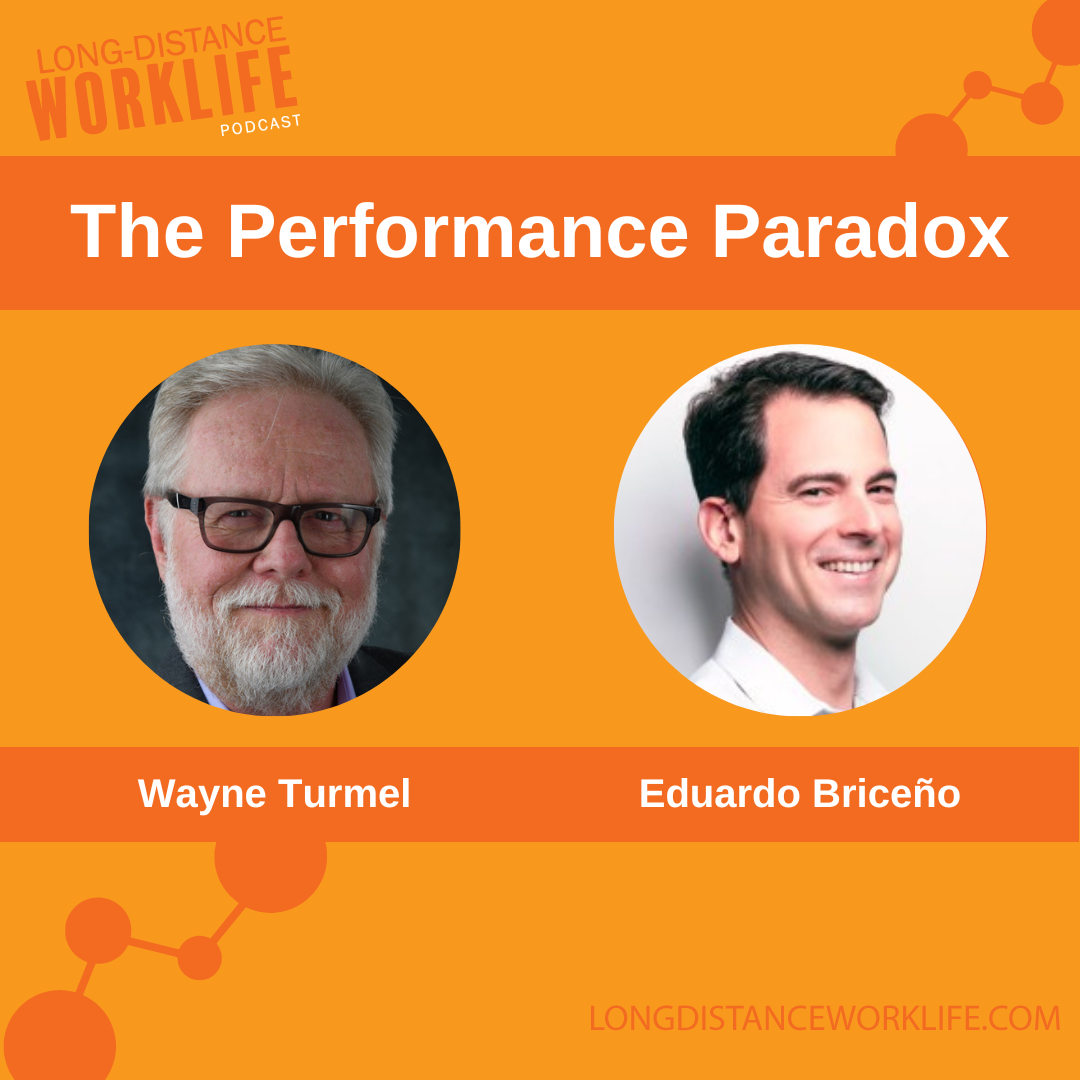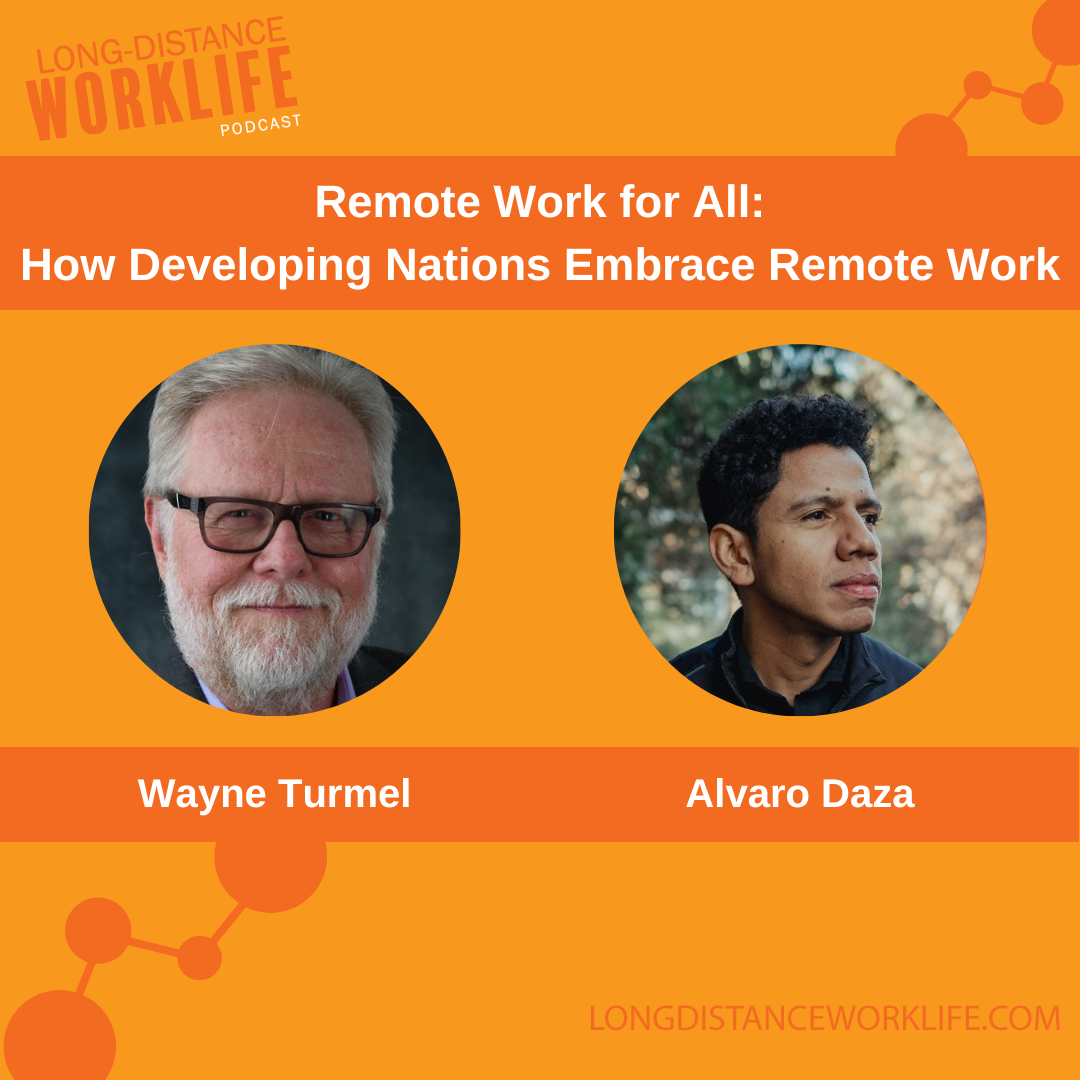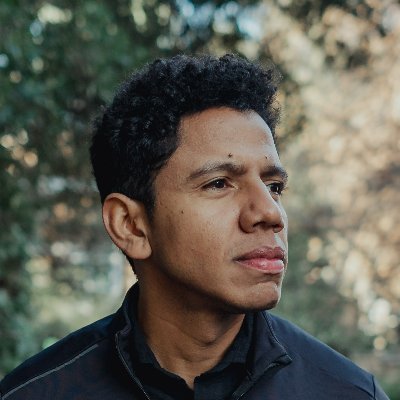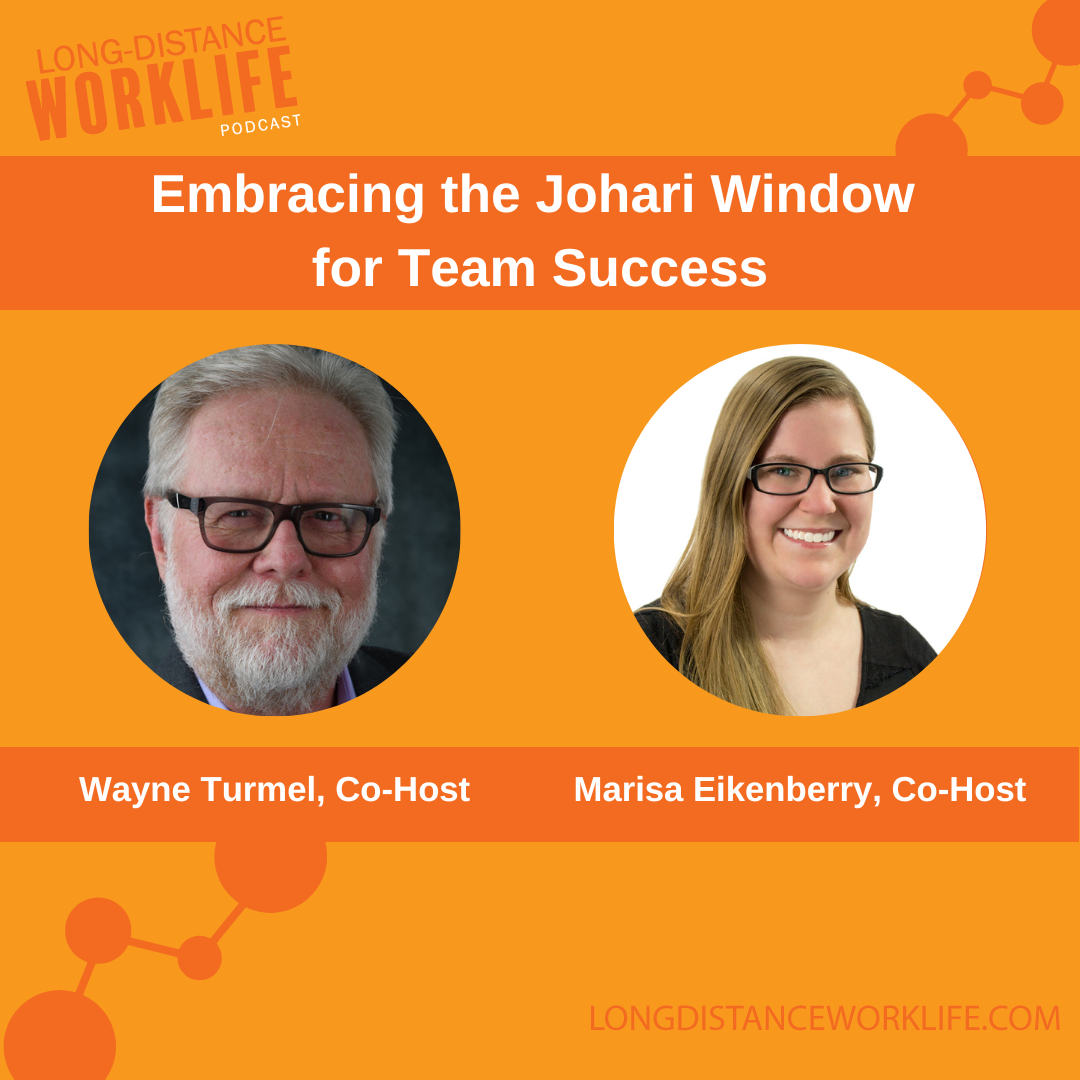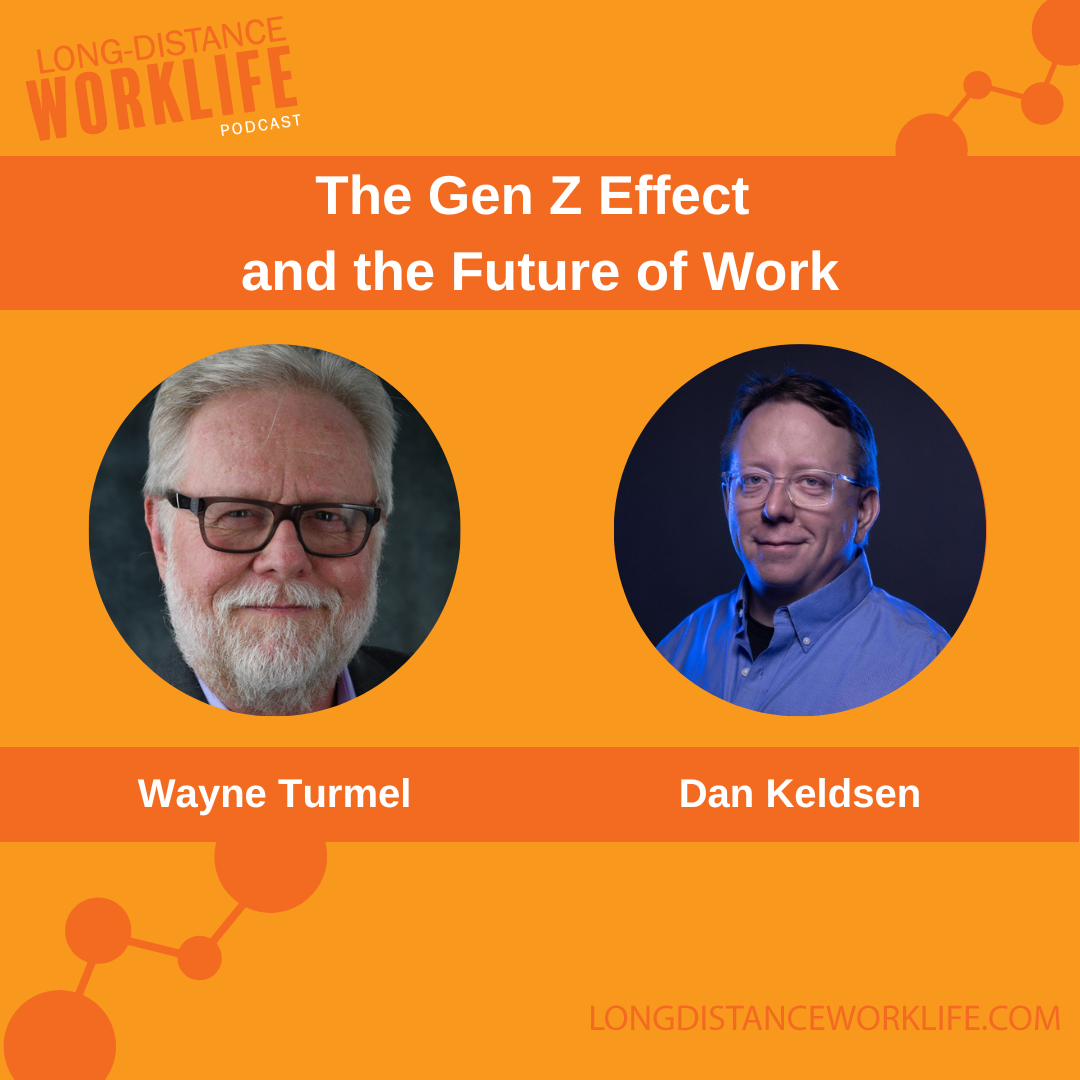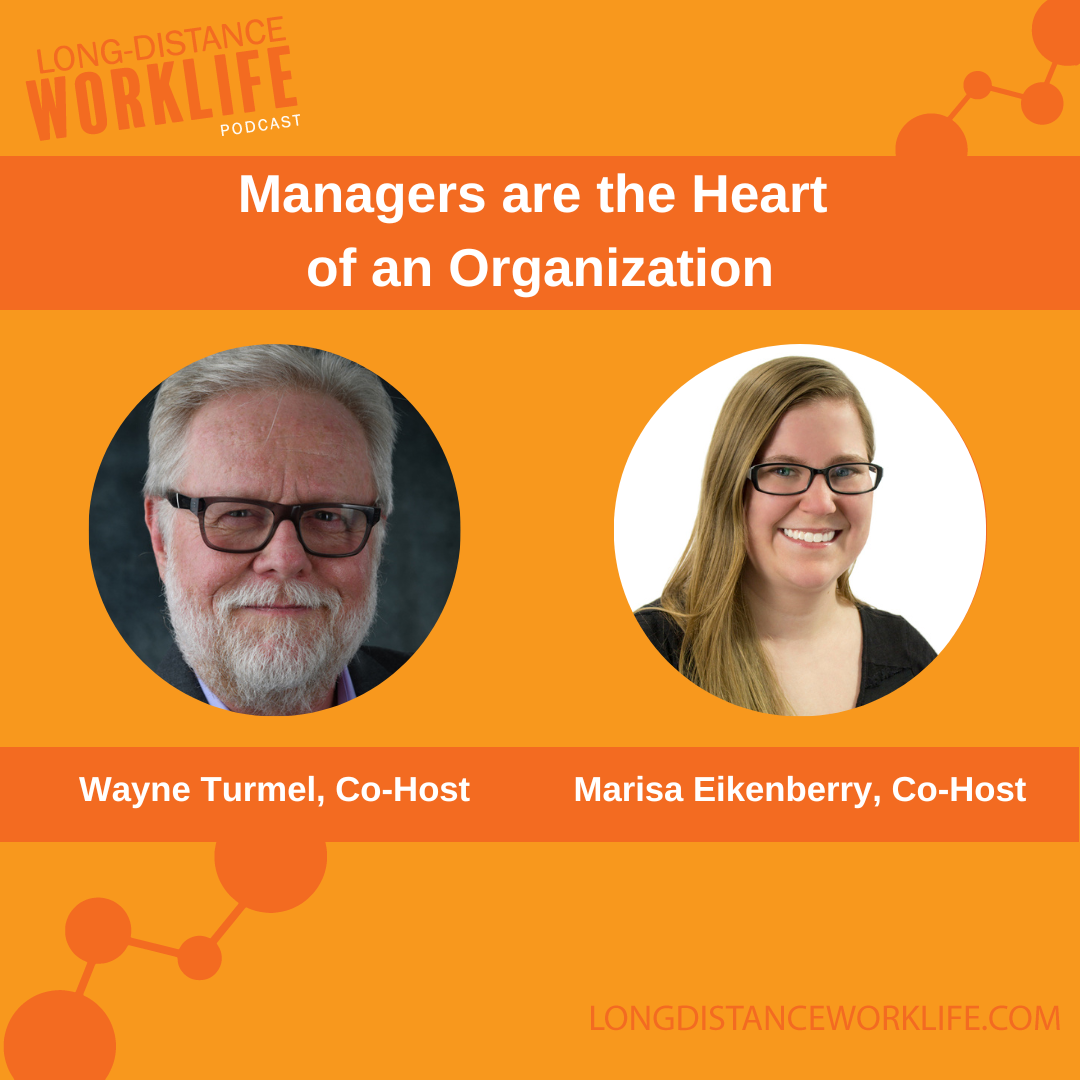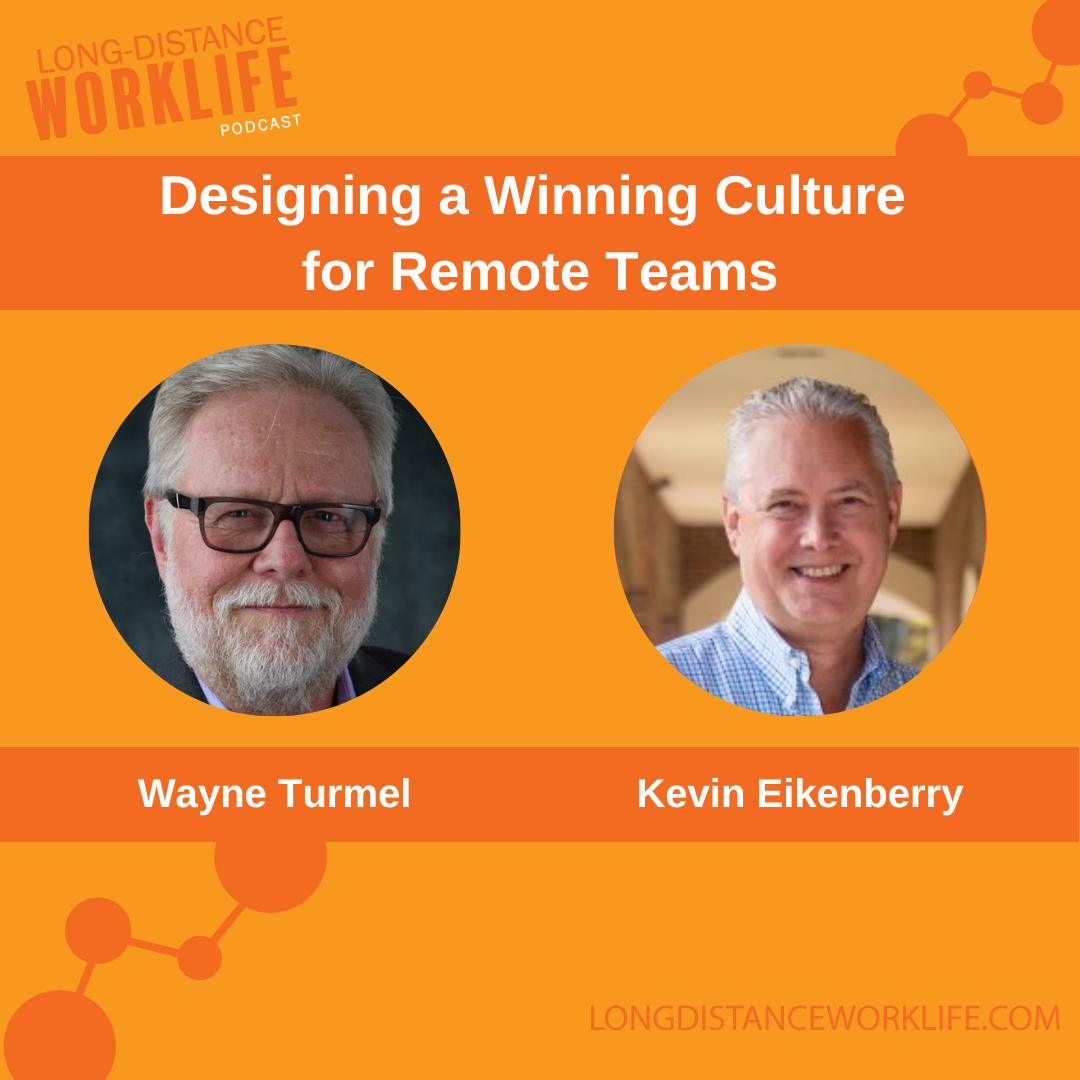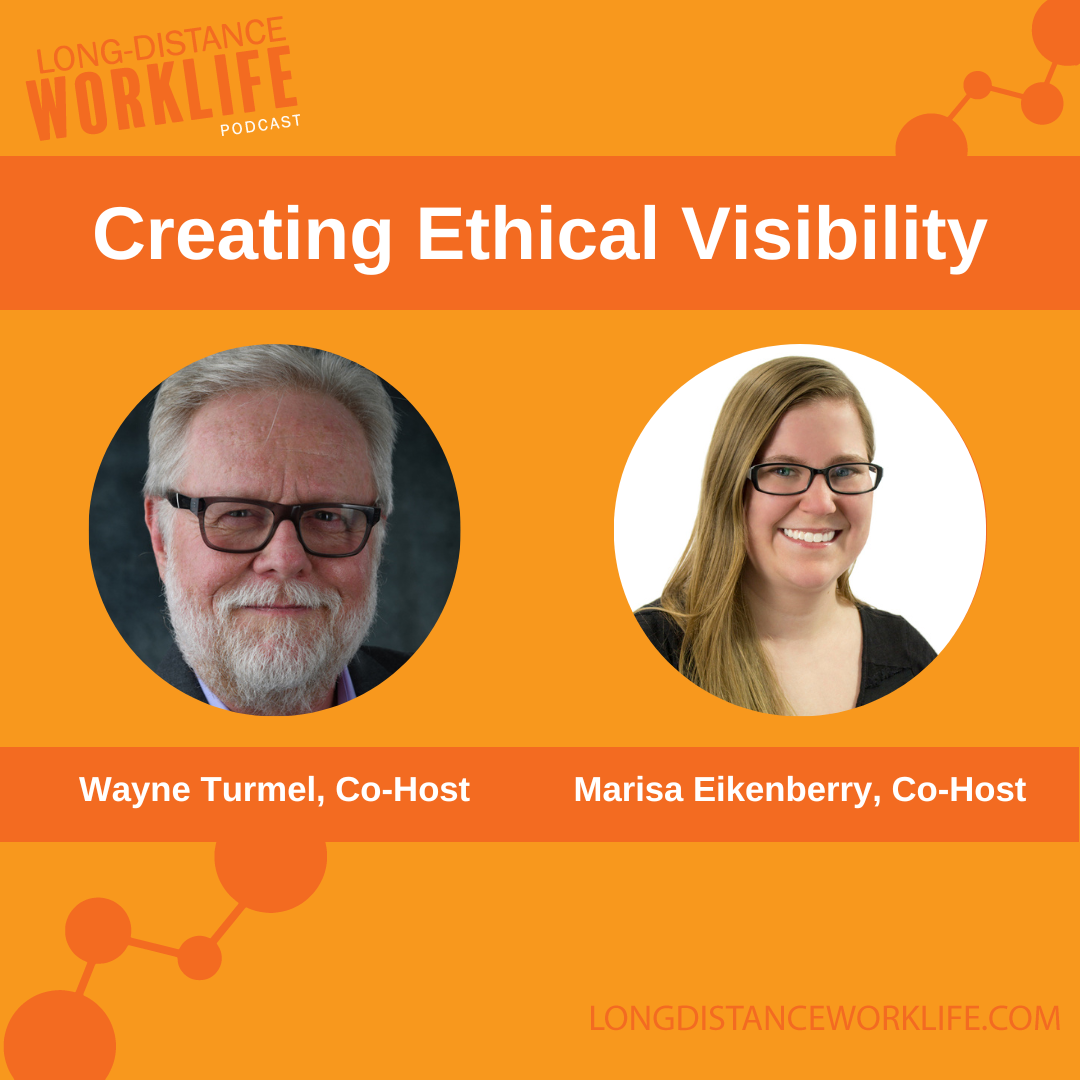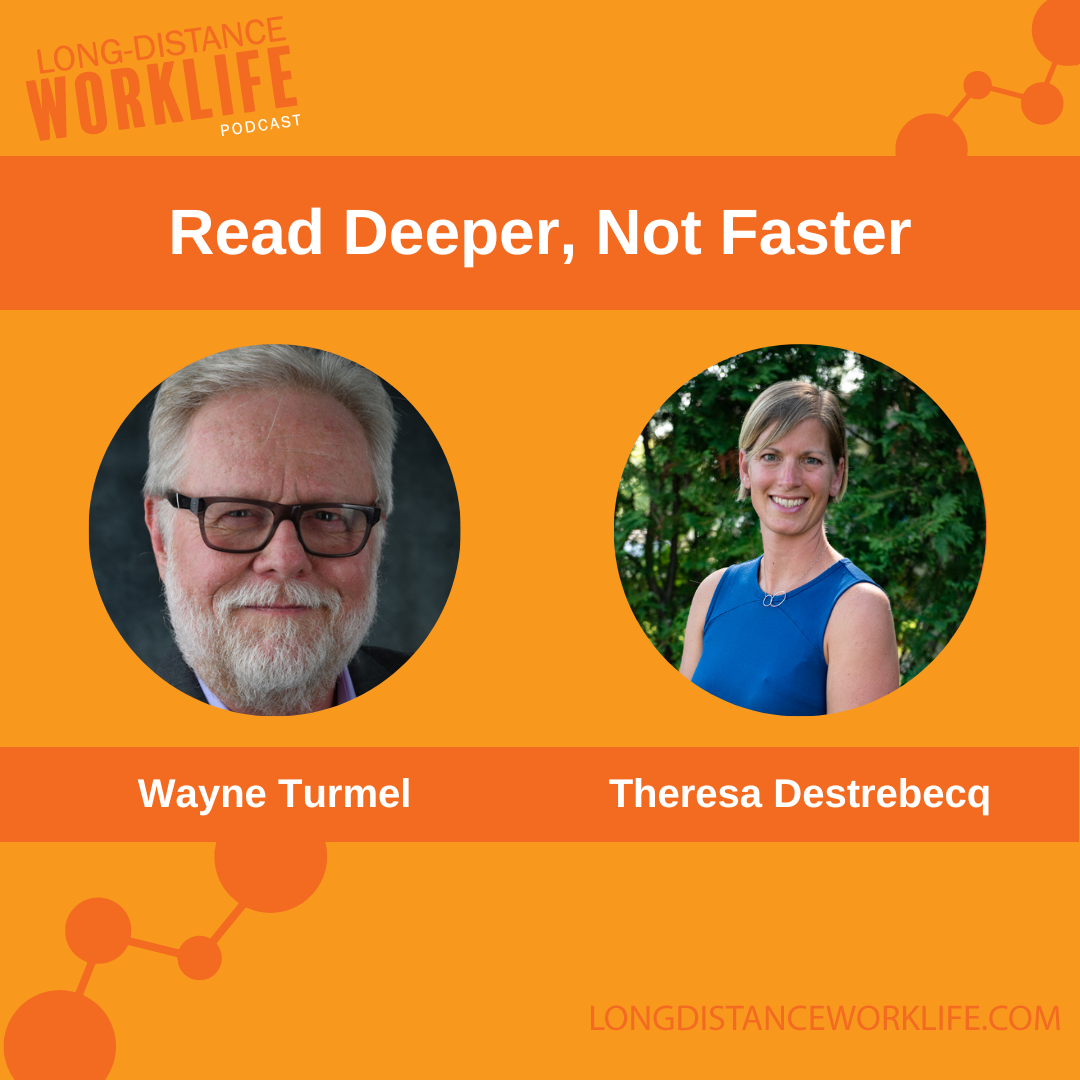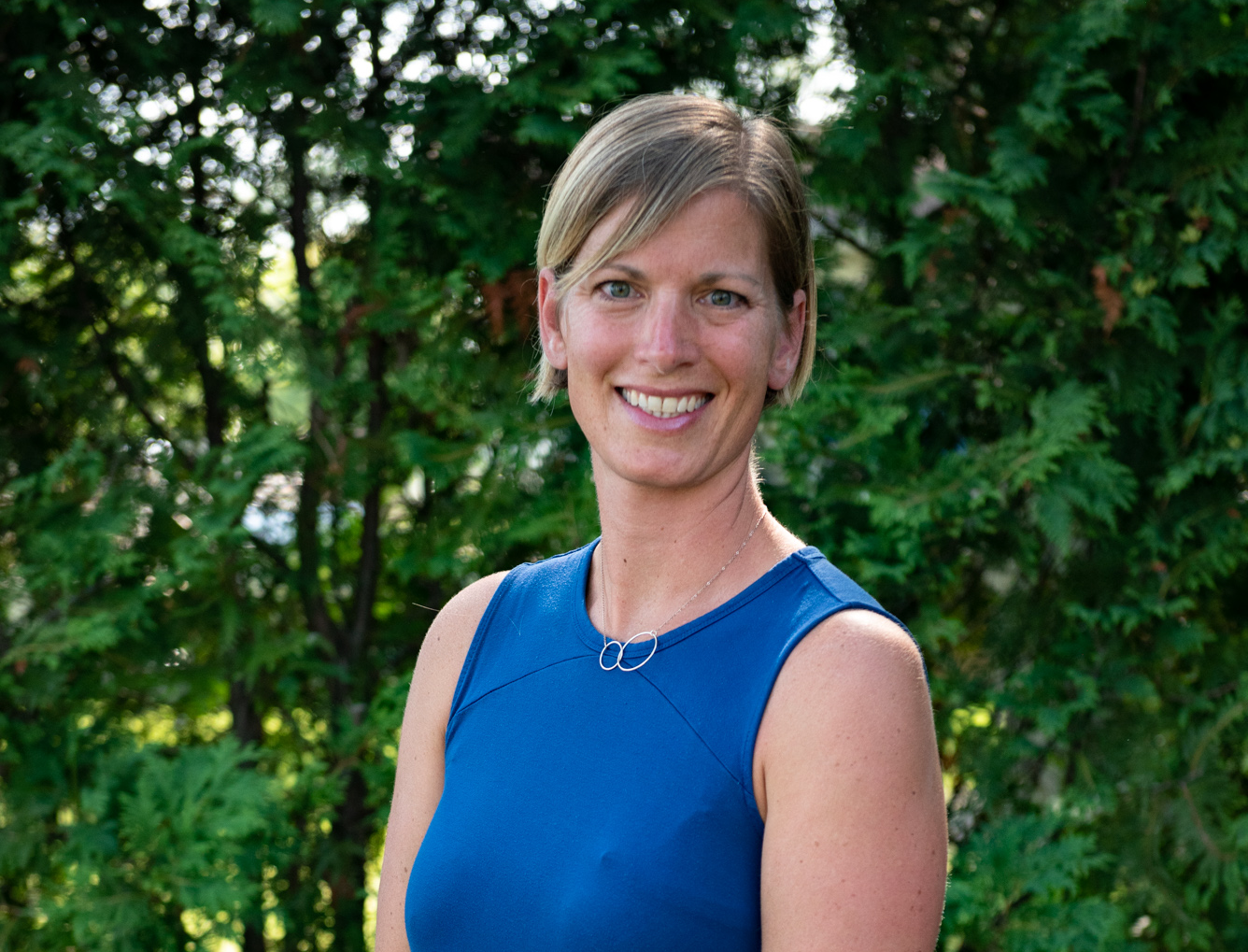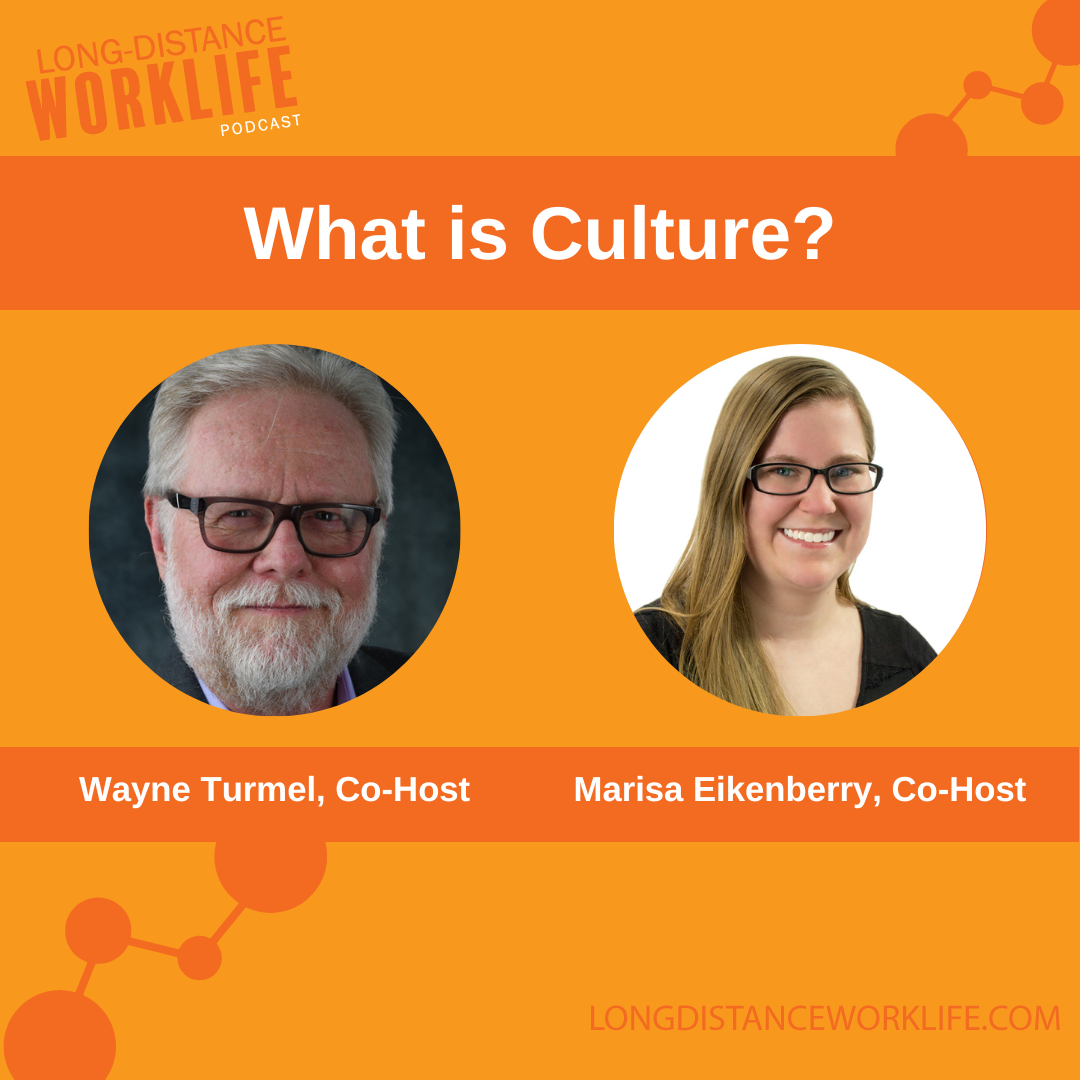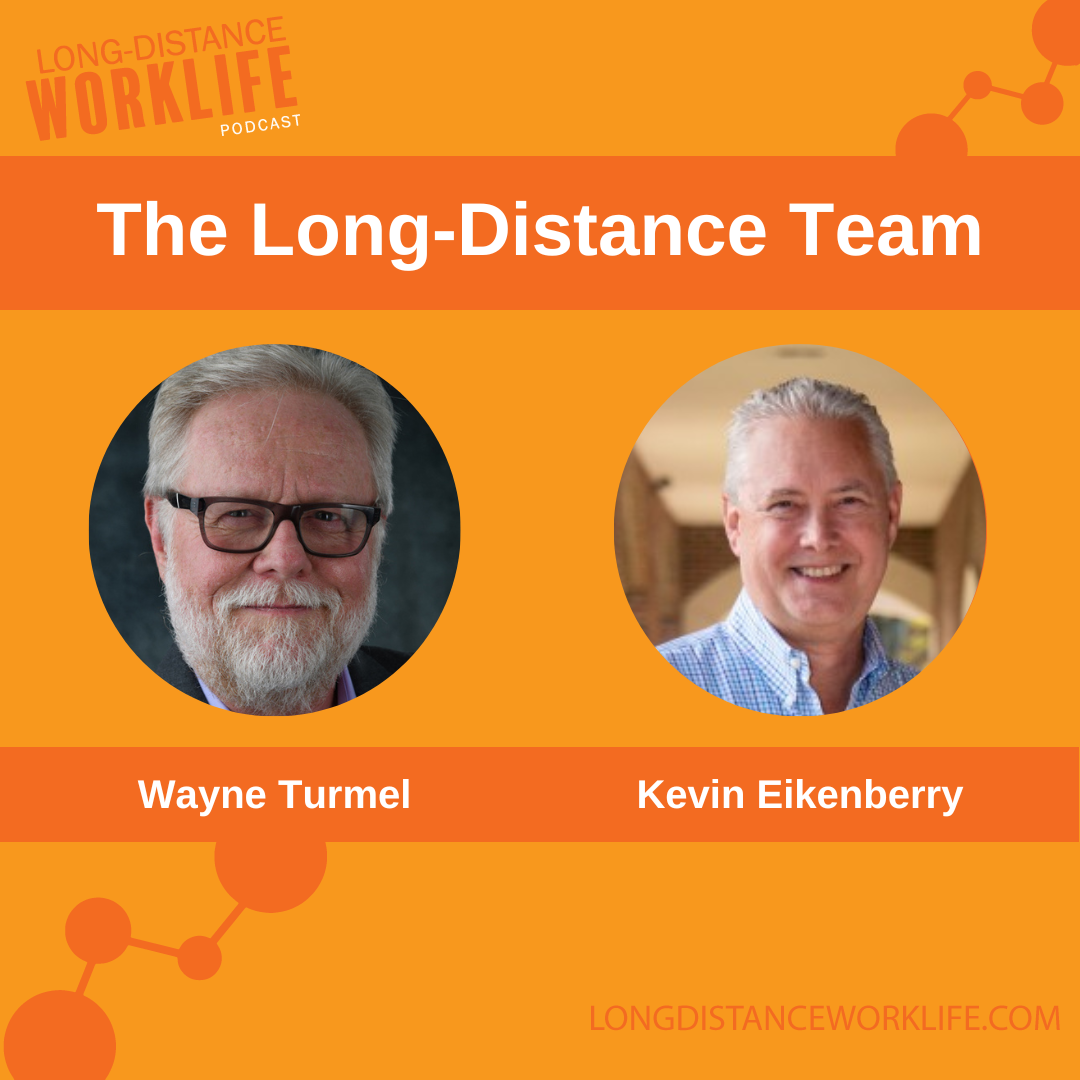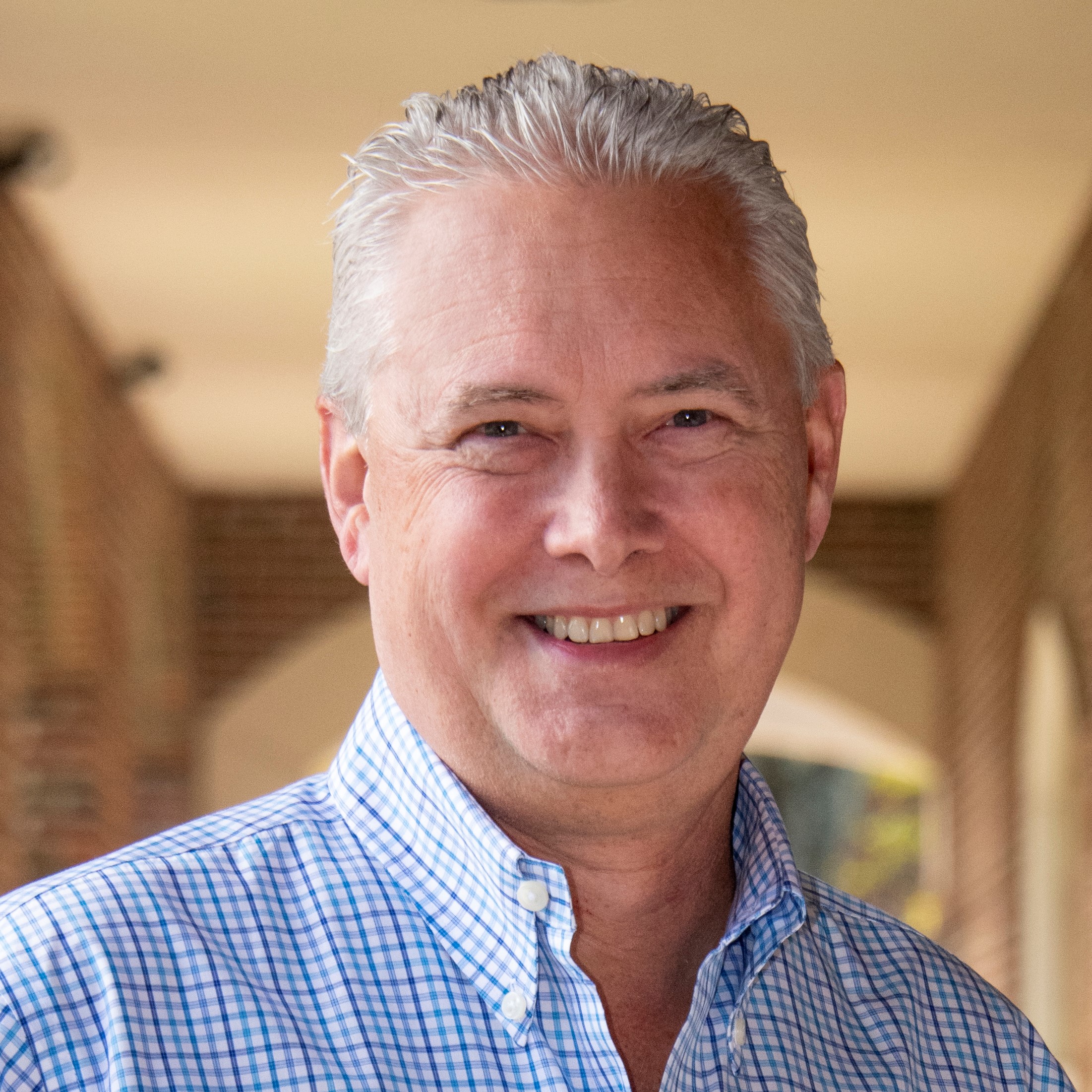In this episode, we're joined by Eduardo Briceño, renowned author of "The Performance Paradox: Turning the Power of Mindset into Action". Eduardo sheds light on the power of feedback as the cornerstone of learning and high performance in a remote work world. Eduardo's insights reveal the importance of cultivating a growth mindset and encouraging team members to solicit feedback for continuous improvement. Learn how leaders can create a culture of learning and empower their remote teams to thrive, all while unraveling the mysteries of the performance paradox.
Key Takeaways
1. Feedback is Essential: Feedback is the most important strategy for learning, improving, and achieving high performance, especially in remote and hybrid work environments. It helps individuals understand the impact of their actions and allows for continuous improvement.
2. The Power of Growth Mindset: Embracing a growth mindset is crucial for personal and professional development. Leaders should encourage team members to see themselves as constantly evolving and capable of improvement, rather than being limited by fixed traits.
3. Focus on Soliciting Feedback: Creating a culture where team members actively solicit feedback empowers them to drive their own growth. Leaders can set the stage by being open to feedback themselves, modeling a learning culture for the entire team.
4. Balancing Praise and Improvement: When giving positive praise, avoid attributing success solely to innate abilities. Instead, focus on specific behaviors and their positive impact. This approach encourages individuals to keep improving and seeking feedback.
5. Regular Check-Ins and Opportunities: Regular team check-ins and personal conversations are critical in remote and hybrid work settings. Deliberately create opportunities for feedback discussions, allowing team members to address progress, challenges, and growth opportunities collaboratively.
00:00:08:02 - 00:00:39:12
Wayne Turmel
Hi, everybody, and welcome back to the long distance work life forecast. Assuming that you've been here before and if you haven't. Welcome. My name is Wayne Turmel My usual co-host, Marisa is not here because this is one of our interview episodes and I am really, really excited. As you know, this podcast is designed to help leaders and people who are working remotely adjust to the new world of remote and hybrid work.
00:00:39:16 - 00:01:01:11
Wayne Turmel
And yet, while a lot of that feels new, there are some things about work and leading people that haven't changed at all in the great scheme of things. And that's what we're going to talk about. We're going to talk about feedback, praise and how we do it or don't do it correctly. I am going to bring in our guest.
00:01:01:16 - 00:01:14:00
Wayne Turmel
Eduardo Briceno is the author of The Performance Paradox. Eduardo, tell us a little bit about yourself before we get into the meat of things here.
00:01:14:02 - 00:01:31:20
Eduardo Briceno
Sure. Thanks, Wayne, and it's great to be here. Eduardo Briceno I am a keynote speaker and facilitator that helps companies develop cultures of learning and of high performance. So as you said, I recently wrote a book called The Performance Paradox, which is about how to do that, how to build cultures of learning and high performance.
00:01:31:23 - 00:01:55:00
Wayne Turmel
Okay, So regardless of where they and their people sit, the one thing that leaders admit that they don't do very well is coaching and offering feedback. So let's start with why is feedback important? Well, let's start with why is feedback important? And then we'll get to how badly we're screwing things up.
00:01:55:02 - 00:02:18:07
Eduardo Briceno
Sure. So feedback is, I think, the most important strategy to learn and to improve and to perform highly, especially in work that is about communication and collaboration, which is most work, right, because we're social beings. And so what we're trying to do is we're trying to create a positive impact on other people, whether it is our customers, our partners, our colleagues.
00:02:18:08 - 00:02:39:19
Eduardo Briceno
And sometimes what we do doesn't have the impact that we want it to have. And so that's why feedback is so important so that we can get information about what's helpful or not helpful about what we're doing and so that we can continue to change and iterate so that we can have the impact we want to have. And also other people can give us information that might be helpful for us to generally to continue to improve.
00:02:39:19 - 00:02:52:08
Eduardo Briceno
They have different perspectives, they have different expertise. So more brains are smarter than one brain, especially if those brains are diverse, have different backgrounds and experiences and skills. And so that's why, you know, feedback is so critical and important.
00:02:52:10 - 00:03:15:19
Wayne Turmel
Or one of those brains is mine, and I'll take all the help I can get. The kind of common belief among leadership experts and I have fallen into this trap on more than one occasion is getting caught up in We give way more negative feedback than positive feedback. And you know, especially when you're working remotely, that balance gets off even more.
00:03:15:21 - 00:03:31:02
Wayne Turmel
But the thing about the performance paradox is you say something fairly disturbing, which is that we give positive praise incorrectly. Help me understand what's going on there.
00:03:31:04 - 00:03:59:22
Eduardo Briceno
Well, yeah. So you referred to the performance paradox. The performance paradox is a counterintuitive phenomenon that if we're always performing, our performance suffers. So if we're always getting things done, we stay at the same level of effectiveness and we don't improve further. So we can talk about that more. But to to your question about praise. I started this work when I started working with Stanford professor Carol Dweck.
00:04:00:00 - 00:04:23:09
Eduardo Briceno
She wrote the book called Mindset The New Psychology of Success. And I started working with her 15 years ago, and her research has shown and now thousands of researchers have studied the same thing in many different contexts, that when we are in what we call a fixed mindset, there's all kinds of negative consequences. A fixed mindset is when we think of ourselves or others as unable to change.
00:04:23:09 - 00:04:42:14
Eduardo Briceno
We think that people are either naturals and gifted or they're inept. And so, for example, if you're a good leader, it must be because you're a natural leader rather than everybody can continue to develop as a leader, or if you're great at giving and receiving feedback, it's because you're a natural, not because you've worked at it. It's not like you can continue to improve.
00:04:42:16 - 00:04:47:11
Wayne Turmel
And so that an unintended consequence of focusing on strengths.
00:04:47:13 - 00:05:07:14
Eduardo Briceno
Well, so we can focus on strengths either in a fixed way, in a fixed mindset way, or in a growth mindset. So if somebody is doing something really well, right, and we want to praise them, we can attribute their strength to something that's fixed and then you're so good at this, you know, keep doing this. But we're not we don't have the idea that they can continue to improve further, Right.
00:05:07:16 - 00:05:32:13
Eduardo Briceno
So that can make them feel like what they do well is just because of something that's inside of them and so few consequences of that. First, they won't they won't be looking to continue to improve that. So to continue to experiment, to continue to solicit feedback, to continue to read and watch podcast and about how to continue to improve that thing that they do well.
00:05:32:15 - 00:05:51:06
Eduardo Briceno
And then second, when they get into trouble, when they do something and it doesn't work well, we tend to feel really badly. We say, Oh, I must not be this good, right? So I'm just going to either give up and do something else because I'm not good at this or I'm just going to hide my mistake. Pretend that it didn't happen.
00:05:51:08 - 00:06:09:22
Eduardo Briceno
So those are some of the consequences of fixed mindset. And so when we're praising people, it's important to not label them, right? Not attribute what they're doing well to something that's fixed in them, but just say, hey, like this behavior that you did, this is the impact that it had. This is what I appreciated about that. And I would love for you to continue doing that.
00:06:09:22 - 00:06:20:22
Eduardo Briceno
Right. And so we are attributing that be the positive effects to what people do and always kind of commenting on behavior with the assumption that we can always continue to improve.
00:06:20:22 - 00:06:35:17
Wayne Turmel
And so let's go back to what you said about the performance paradox and that we're so busy doing stuff and that becomes the the focus. Tell me a little bit more about the actual paradox.
00:06:35:19 - 00:06:58:10
Eduardo Briceno
Yeah. So we tend to think that the way to succeed is just to work hard and to execute. And if we do a lot of an activity, we will get really good at that activity. But that's actually not true. It's actually gets us stuck. So if you think about if we take it out of our context so we can understand the idea and then we'll bring it back to our context.
00:06:58:12 - 00:07:21:04
Eduardo Briceno
If we think about, for example, a professional athlete, if they're working to win a championship, they're in the middle of a game. It's a really important game and they're having trouble with a particular move. Say, I'm a tennis player, I'm having trouble with the topspin serve and I'm having trouble with that move in that match. I'm going to try to avoid that move during that match because all I care about was winning.
00:07:21:05 - 00:07:43:04
Eduardo Briceno
Right. But then after the match, I'm going to go to my coach and I say, Coach, have to work on my topspin serve. So it's a very different activity and an area of attention. And what we do when we're seeking to improve and what we're seeking to execute and get things done. So that's what I call the learning zone is when we're working to improve and the performance tone is when we're working to perform and get things done.
00:07:43:06 - 00:08:03:16
Eduardo Briceno
And what often happens in work and life is that we are just focused about getting getting things done. All we care about is going through a task list, getting things done, and that works okay when we're novices because we're so bad that if we just try to do the activity, we'll get better. But then once we become proficient, we actually stagnate and we don't get better.
00:08:03:16 - 00:08:27:01
Eduardo Briceno
And so, for example, there's research out of Harvard that shows that the more years of experience that doctors, general physicians have on the job, on average, their patient outcomes actually get worse over time. The more experience they have because they're so busy seeing patients, right. Diagnosing and prescribing that they don't have time to engage in continuing to learn.
00:08:27:02 - 00:08:42:00
Eduardo Briceno
And and that's what is needed in order to improve and to increase performance. So we think that we're too busy to engage in learning, but actually we can get more done and perform better if we figure out how to embed learning and integrate learning into how we do things.
00:08:42:02 - 00:08:58:00
Wayne Turmel
And some of that, I presume, is tied to the old adage that, you know, you get what you practice. So, you know, spending hours and hours practicing or doing something doesn't make you better. And it just makes you really, really good at what you're doing. Well.
00:08:58:01 - 00:09:11:19
Eduardo Briceno
Right. And so if you're doing something to your point with techniques that are not great, you're going to reinforce those techniques to your point, are going to keep doing those techniques, even if they're not great techniques or if there are better techniques out there. Yeah.
00:09:11:22 - 00:09:40:16
Wayne Turmel
Now, one of the things that coaches tell coaches, leaders tell us all the time is that giving feedback can be kind of uncomfortable. And, you know, so we do tend to keep it very transactional, right? Go down the checklist and get that done. You are an advocate for, as are we for asking questions as a form of getting to the feedback.
00:09:40:21 - 00:09:46:10
Wayne Turmel
Tell me a little bit about how one does that. What kind of questions are we talking about?
00:09:46:13 - 00:10:15:06
Eduardo Briceno
Well, first, I do think the power of questions and helping people reflect in a coaching approach is so powerful and we can talk about that. I think before we do that, we need to set the stage. So when we start working with our colleagues and with our teams and this is so much more important to do even in a hybrid world, but to your point is important everywhere, right, is to set the stage in terms of how we want to work together, you know, and in lots of different ways, including feedback, Right?
00:10:15:07 - 00:10:39:15
Eduardo Briceno
What do we think of feedback? What is feedback? Because different people have different views of what feedback is. Some people are afraid of it. Some people are not just like some people are afraid of snakes and others are not. Some people are afraid of chickens, others are not. And so if we just go and start working with somebody and give them feedback, they might see feedback as something that is a sign that they're not doing their job well.
00:10:39:15 - 00:10:59:19
Eduardo Briceno
Right. Or a sign of of incompetence. Whereas we might see feedback as something that everybody can benefit from, right? Even the best person in the world loves to get feedback to get even better. And so we need to make our implicit assumptions about feedback, about learning, about what work is, about what our relationships are, about what we're trying to accomplish together.
00:10:59:21 - 00:11:19:14
Eduardo Briceno
We need to make those implicit assumptions explicit in conversation, right? So that we're not kind of dictating what culture we want to have, but co-creating that with our colleagues and say, Hey, what do people think about these ideas? What would you like to focus on? Should we focus on feedback now or in something else? How do we how can we work together as a team better?
00:11:19:16 - 00:11:23:17
Eduardo Briceno
And what do we what do we want to focus on now for the next month? For example?
00:11:23:19 - 00:11:48:07
Wayne Turmel
I think those assumptions are really important because we tend to work the way we like to work, right? We assume that everybody thinks about us. I'm one of those people. Don't sugarcoat it. Don't give me the sandwich. I don't need the fluff. Just tell me what I did wrong and we'll move on. Right. And that's my preference. And so that tends to be my default style.
00:11:48:09 - 00:12:14:09
Eduardo Briceno
That is my preference to wane and that is my default style to and it it was the default style also of a friend of mine and classmate. His name is Marcello Beddoes, and he's the CEO of Beauty for All Industries. And in my book I talk about a story that he shared with me, which is that his dad, who whom I've met, he his dad always gave him very blunt feedback and focused on what he could improve.
00:12:14:15 - 00:12:36:22
Eduardo Briceno
And Marcello knew that his father always meant love, and he was just being helpful. And it worked for him for Mattel. But when he became a CEO, he took that same approach with his colleagues and he would just tell them very straight, blunt, you know, here's here's what we can do better. And his colleagues felt like he didn't appreciate how hard they were working and what they were contributing.
00:12:37:02 - 00:12:54:16
Eduardo Briceno
So through feedback, through conversations, Marcello realized, okay, like, this is how I view feedback. This is how I like to receive feedback. But other people need to know that I appreciate them, that I'm seeing the work, the good work that they're doing because he did really appreciate them and that he think that they were being very valuable, but it wasn't coming across.
00:12:54:21 - 00:13:10:15
Eduardo Briceno
So he had to learn through feedback how what was going to be the culture and the rituals of that team. Because to your point, we all have different preferences and so we need to be in conversation and co-create the culture with our colleagues so that we can do something that works for everybody.
00:13:10:17 - 00:13:34:20
Wayne Turmel
So tell me about the questions that you ask, because there is a huge difference between what were you thinking and what were you thinking? I mean, those are those are two they sound like the same question, but they're not. Right. So talk to us about what kinds of questions get us, the kind of results that you're talking about.
00:13:34:21 - 00:13:56:12
Eduardo Briceno
Well, yeah, I agree. And I think that the setting and the purpose of the conversation is very important. Kind of what what is to come, the common understanding about our goals. And so it depends on what kind of conversation is and what the goal is. But I think it's important in anticipation of that, to share with each other what we're looking to improve.
00:13:56:12 - 00:14:18:11
Eduardo Briceno
What am I interested in getting better at sharing that with my colleagues so that we all know what we're all working on so we can help each other around those areas in particular. So if I'm having a coaching conversation with a colleague and I know, you know, she's working on participating more in meetings, you know, I might ask her, hey, how, how, how do you think that's going?
00:14:18:11 - 00:14:51:18
Eduardo Briceno
How do you feel about your progress or not in participating in meetings? And then she might give some reflections around that. Right. And I might say, well, what specifically did you feel went well or didn't go well, or what did you do that that made it go well or that what could you have done differently so that helping reflect on how much progress is she making and what is she doing or not doing that is working and very important to identify what is she going to do differently going forward.
00:14:51:18 - 00:15:15:22
Eduardo Briceno
So in the next meeting or the next few meetings, what what one thing is she going to work on in order to continue to improve and how can I support her to it? How can I support you in your progress? Do you have any feedback for me? And that's probably the most part. One of the most powerful questions to ask as a as a colleague and as a leader is do you have feedback for me or what could I have done better or I'm trying to get better at this.
00:15:15:22 - 00:15:28:17
Eduardo Briceno
Do you have any ideas? When we model soliciting feedback, then we are modeling a learning culture where we're learning from each other. And when other people emulate our behaviors, then we build a culture we want to build.
00:15:28:19 - 00:15:48:18
Wayne Turmel
I like what you said about asking those questions because if you ask those questions early on, you know, how do you think it went? You know where they're at in terms of receiving the feedback if they're beating themselves up, Oh, I suck. I was the worst little bit. Okay. That's I have to work with that person differently than if somebody goes, Oh, I was great.
00:15:48:18 - 00:15:49:15
Wayne Turmel
I was bulletproof.
00:15:49:18 - 00:16:11:12
Eduardo Briceno
Absolutely. Yeah. And if they're generating those insights is is much more powerful and it's much more credible, they understand it a lot better. So if we are helping them generate the thoughts and having the thoughts come from them is going to work a lot better than if we are kind of trying to transmit the thoughts from us to them.
00:16:11:15 - 00:16:35:06
Wayne Turmel
You know, the big difference, it seems when you're in the office versus working remotely or apart from each other is the opportunities for feedback. And we've only got a few minutes left because that's the way the world works. But as a leader, how do I help myself remember to create those opportunities?
00:16:35:08 - 00:17:00:04
Eduardo Briceno
Well, I think regular tech teams are so powerful when possible, right? It's just having regular conversations scheduled in the calendar and they're recurring basis whether one on one or there are some cultures where you can have a team conversation that involves feedback, where people have so much trust that you can have open and honest conversations. And that's super powerful because then when you're having those conversations, other people can chime in, Oh, I saw that too.
00:17:00:04 - 00:17:23:13
Eduardo Briceno
Or, you know, but what I appreciated about about that was X, so you can learn more in a group conversation. But with hybrid, Yes. So it's harder to build relationships. It's hard to build trust. So it's important for us to be deliberate about creating those regular conversations, to creating opportunities for having personal conversations, not only work conversations, but it also creates opportunity, right?
00:17:23:13 - 00:17:48:13
Eduardo Briceno
Because we can connect with any of our colleagues wherever they are. We can be more equitable. We can because if we have kind of regular check ins with everybody, we can have conversations with everybody and not be as biased around who is who is closer to us or who are working more regular and regular basis. So we I think we have to be more deliberate in general in a hybrid environment, but but it also comes with opportunities.
00:17:48:17 - 00:18:12:21
Wayne Turmel
We are sadly at the end of our time and this is one of those conversations that I could geek out for a very long time on. And Eduardo, if there's one thing that you want people to walk away, and of course, if people only walk away from one thing in this conversation we done a terrible job. But if there is only one thing that they can walk away with, what do you want people to know?
00:18:12:23 - 00:18:35:20
Eduardo Briceno
What I want people to know is that feedback is probably the most powerful way to improve and to build relationships and the most effective. The most powerful thing that you can do around feedback is to encourage the soliciting of feedback and solicit feedback yourself. When people solicit feedback rather than focus on giving feedback, then the person soliciting the feedback is in the driver's seat.
00:18:36:02 - 00:18:50:09
Eduardo Briceno
They can ask for specifically what they're looking for. They can also choose the time, right? Which is more important, a hybrid setting. When am I ready to hear this feedback? So a culture of soliciting feedback is the most powerful thing that you can build when it comes to feedback.
00:18:50:11 - 00:19:17:16
Wayne Turmel
Eduardo was saying, you know, the book is The Power of Performance Paradox. Thank you so much for being with us on the Long-Distance Worklife. That's it. Thank you, everybody. If you want to know how to contact Eduardo, how to learn more about the book and about his work, go to longdistanceworklife.com, It will all be in the show notes as is a transcript of the show.
00:19:17:18 - 00:19:45:03
Wayne Turmel
If you are looking to build your team with a culture of feedback, may we suggest the long distance team designing your team for everyone's success? Kevin Eikenberry and my new book, you can learn more specifically about the book with special offers at longdistanceteambook.com. Marisa will be with us in the next show. I know many of you say thank goodness, like and subscribe to the show.
00:19:45:05 - 00:20:10:03
Wayne Turmel
You know how podcasts work. If you like it, tell your friends If you didn't. It's just our little secret and you can reach us directly on LinkedIn or by email. We are currently soliciting pet peeves about remote work and your questions. So we want to make sure that the show addresses what you care about in this new world of work.
00:20:10:03 - 00:20:20:11
Wayne Turmel
So thank you so much for being with us this week. My name is Wayne Turmel. We'll see you again on the long distance work life. And don't let the weasels get you down.
Timestamps
00:00 Introduction
00:39 Importance of Feedback
01:14 Guest Introduction: Eduardo Briceno
01:55 Why Is Feedback Important?
02:18 Impact of Feedback in Communication and Collaboration
02:52 Importance of Diverse Perspectives in Feedback
03:15 The Performance Paradox: Balancing Performance and Improvement
04:00 The Impact of Fixed Mindset in Feedback
04:47 Focusing on Strengths in a Growth Mindset
05:32 The Consequences of Fixed Mindset in Feedback
06:20 The Learning Zone vs. Performance Zone
06:58 How Continuous Learning Leads to Improvement
08:02 Importance of Regular Check-ins and Conversations
08:58 Understanding Individual Preferences
09:40 Setting the Stage for Feedback
10:15 Asking Reflective Questions
11:19 Building a Culture of Soliciting Feedback
12:14 Understanding Different Feedback Styles
13:10 Creating Opportunities for Feedback in Remote and Hybrid Settings
16:11 The Power of Soliciting Feedback
17:48 Conclusion
Related Episodes
- Building Connections as a Digital Nomad with Liz Scully
- How to Conduct Performance Reviews for Remote Employees
- Strategies for Career Growth in a Remote Work Era with Catherine Morgan
- Managers Are the Heart of an Organization
- Crucial Conversations: Navigating Communication Boundaries in the New Age of Remote Work
Featured Guest
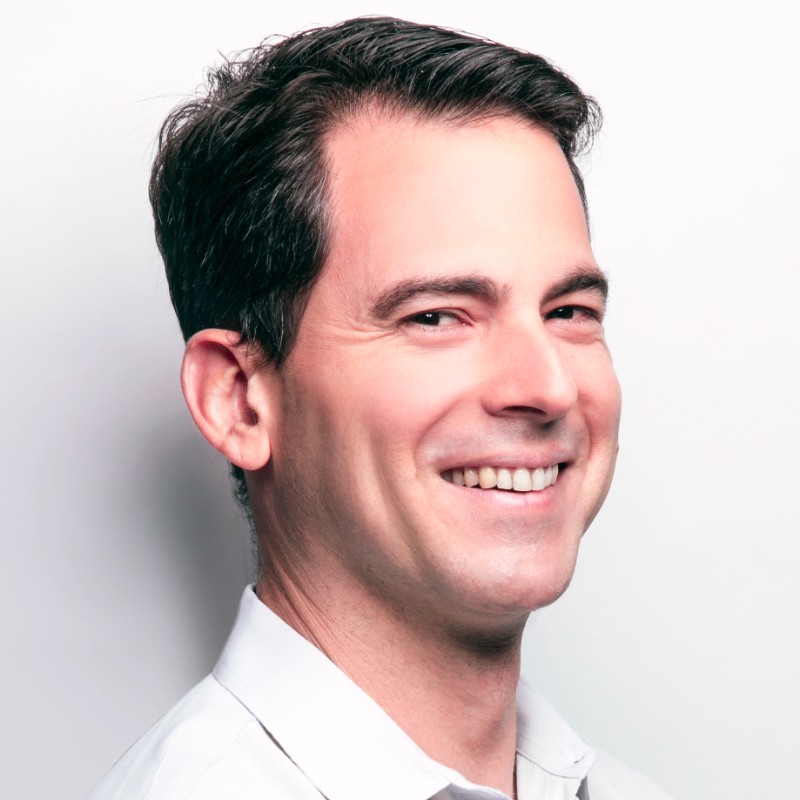
Name: Eduardo Briceño
What He Does: Author of The Performance Paradox, Keynote Speaker, and Facilitator
Notable: Eduardo has a bachelor’s degree in finance from the Wharton School and an MBA from Stanford, as well as degrees in chemical engineering and education. He is a Pahara-Aspen Fellow, a member of the Aspen Institute’s Global Leadership Network, and an inductee in the Happiness Hall of Fame. He has helped some of the world’s largest companies develop a culture of learning and high performance and his TED talks have been viewed over eight million times.
Additional Resources
- Learn more about Eduardo Briceño
- Learn more about The Performance Paradox
- Learn more about Wayne Turmel
- Email Wayne Turmel
- Connect with Wayne Turmel on LinkedIn
- Purchase a copy of The Long-Distance Leader
- Purchase a copy of The Long-Distance Teammate
- Purchase a copy of The Long-Distance Team
- The Kevin Eikenberry Group
Order The Long-Distance Team
Remote leadership experts, Kevin Eikenberry and Wayne Turmel, help leaders navigate the new world of remote and hybrid teams to design the culture they desire for their teams and organizations in their new book!


